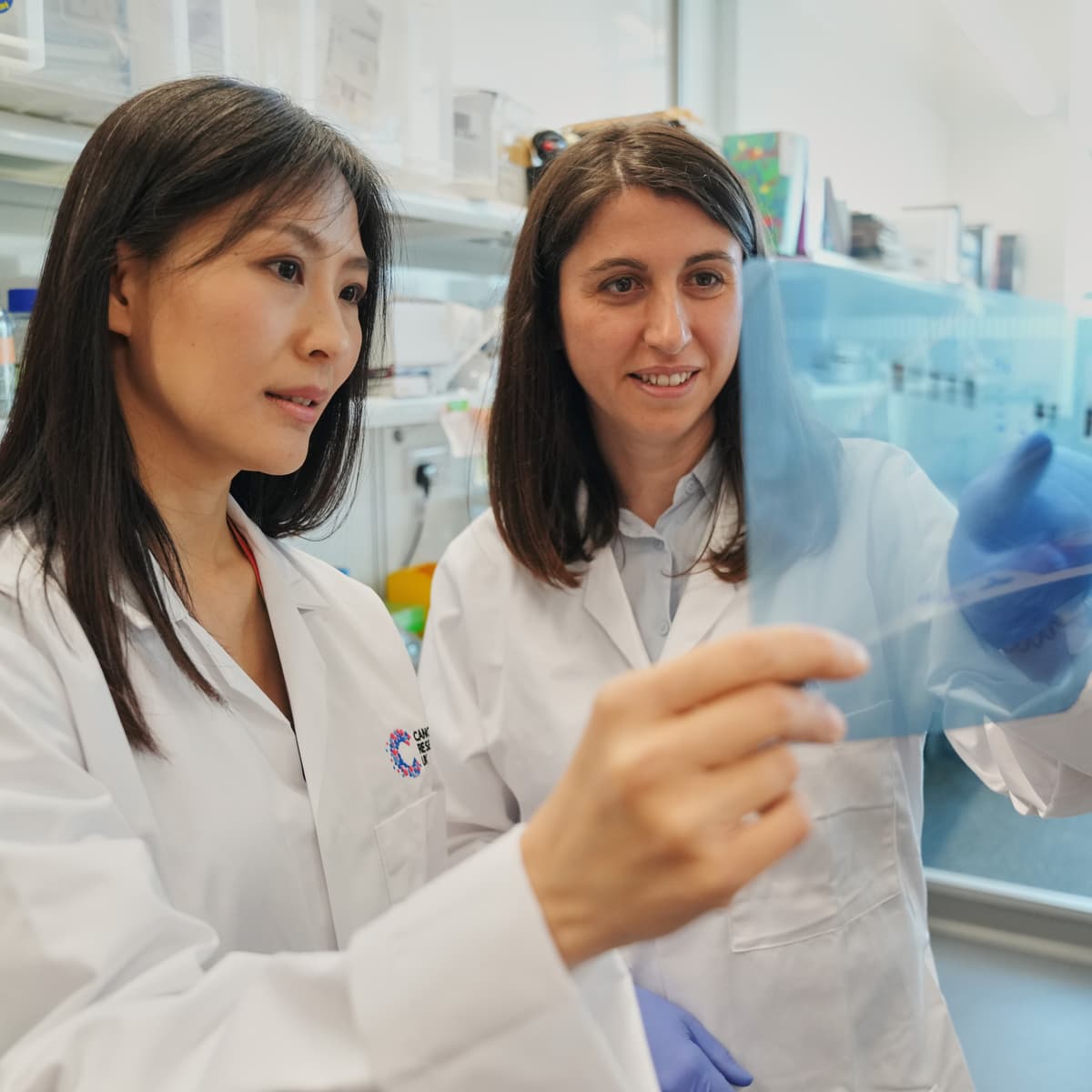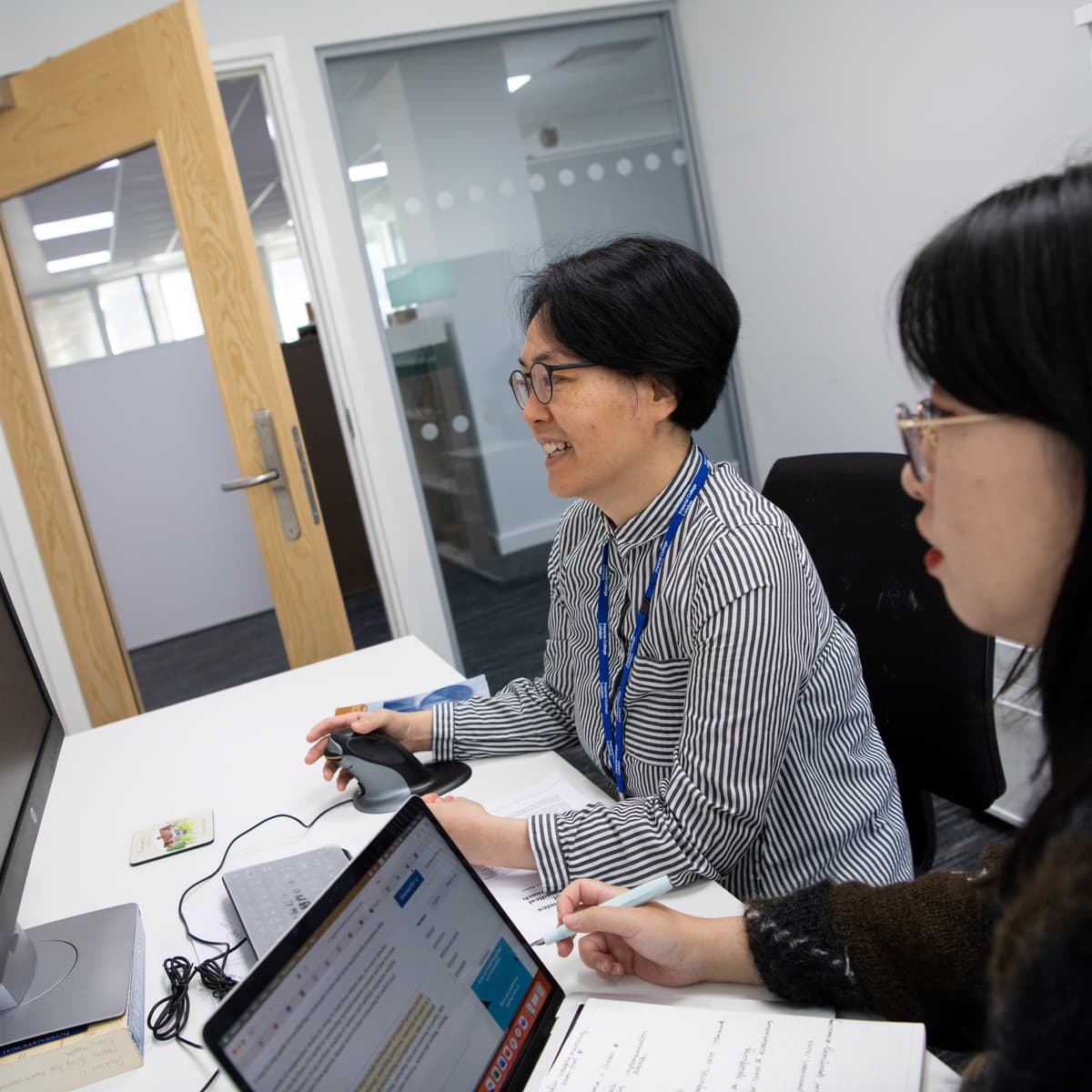
Preventing cancer is one of our strategic research objectives.
We have a strong track record of supporting highly impactful epidemiology and behavioural research which has transformed our understanding of cancer risk factors and how to modify these to prevent cancer.
However, it’s primary prevention of cancer that will have the greatest impact when it comes to saving lives and unburdening health systems across the UK. Unlocking the biological and mechanistic understanding of cancer aetiology, genesis and risk will lead to novel precision prevention interventions.
We support a broad portfolio of prevention and population research aimed at understanding the epidemiology of cancer, cancer risk, incidence and survival and preventative interventions.
Explore all funding opportunitiesWe are building on biological insights and mechanistic understanding to inform a new wave of more precise preventive interventions to decrease cancer incidence equitably across society.
Bringing biology to prevention: harness fundamental biological insight to provide new targets for cancer prevention.
Deepening our understanding of risk: deliver a more thorough, integrated understanding of population and individual cancer risks to develop precision prevention measures.
Reaching further with precision prevention: develop novel preventive interventions, precisely targeted to risk factors and mechanistic pathways, through behavioural, pharmacological and immunological means.
Understanding and addressing health inequities in cancer incidence: deliver research to support a more effective and equitable public health agenda in cancer prevention.
Building prevention research capacity and community: attract new researchers and novel thinking across career stages and disciplines.
Our Prevention and Population Research Committee (PPRC) supports research on cancer primary prevention and population studies across all cancer types and stages to improve understanding of cancer risk, incidence, and outcomes.
Our committee works with expert review panels, as well as patient and public panels to support research with potential to make a real difference in cancer prevention.
You can find out who we have recently funded for a taste of the kinds of projects we support.
Explore our recently funded awards

We are partnering with Stand Up To Cancer on a new funding call to support UK-US research collaborations to prevent and intercept cancer recurrence.
The Prevention, Early-stage Detection and Interception of Recurrence Challenge invites proposals to design, validate and test innovative interventions to prevent cancer recurrences or to detect and intercept early-stage recurrent cancers.
Awards range from $1m to $4m over 1 to 4 years.
Submit your Letter of Intent by 1 October 2025.
We're committed to supporting careers in prevention and population research. We encourage new researchers from different disciplines and across all career stages to get involved in this research area, and enable this through our events and in how we fund.
You can access funding and additional support through our committee but also through fellowships, bursaries and other career development opportunities. Postdoctoral researchers are eligible to lead on our Biology to Prevention and Project Awards, and we have dedicated sessions for emerging researchers at our annual Prevention Conference. Early career researchers are also able to observe our funding committee meetings.
Whether you're new to the lab or looking for funding to start your independent research group, we can support you at any stage in your career.
Learn how we can support your research
We host research and translational conferences, meetings and workshops. Join us to hear about the latest science, present your own research and network with our exceptional community.

Our Cancer Prevention Research Conference is run in partnership with the American Cancer Society. This event is building a multidisciplinary community to foster new collaborations and enable advances in future cancer prevention approaches. The next conference will be held June 3-5 in Atlanta, Georgia, USA.

We’ve partnered with Our Future Health as the first founding charity member to support their long-term population study aiming to improve health outcomes in the UK. Our funded researchers can access their dataset at a reduced cost.

We're part of a multi-funder £50m initiative to support novel research into the primary prevention of non-communicable diseases including cancer. The initiative aims to increase investment in prevention research in the UK to improve population health and reduce health inequalities through this work.

We're a core funder of UK Biobank, which is a large-scale prospective cohort study to transform our understanding of the causes of cancer, and to drive progress in treatment and prevention over the coming decades. Apply now to access the data through the UK Biobank's secure biomedical database.
Explore the latest articles and blogs for researchers, featuring advice, guidance, network updates and research projects.

After winning the poster prize at our first Cancer Prevention Research Conference, we spoke to Zhe Huang about his work and the story behind his early career.

Our first two Biology to Prevention awardees take us through their work and explain why they think a biological approach to cancer prevention is important.

David Crosby explains why Our Future Health programme will be a step change towards cancer prevention and early detection.

Our strategy shapes how we'll discover more about the mechanisms of how cancer develops and progresses to unlock new and better ways to prevent, detect and treat it.

Do you have questions about our prevention research strategy? Are you looking for available funding opportunities in your research area? We can help you find what’s suitable for you.
We host scientific conferences, workshops, webinars and other events. Join us to hear about the latest science, present your research and network with our exceptional community.
Our bi-monthly newsletter includes exciting opportunities in prevention and population research, including research stories, funding initiatives and upcoming events.
Explore our latest articles and podcasts for researchers, exploring issues in cancer science and how that science shapes our understanding of the disease.